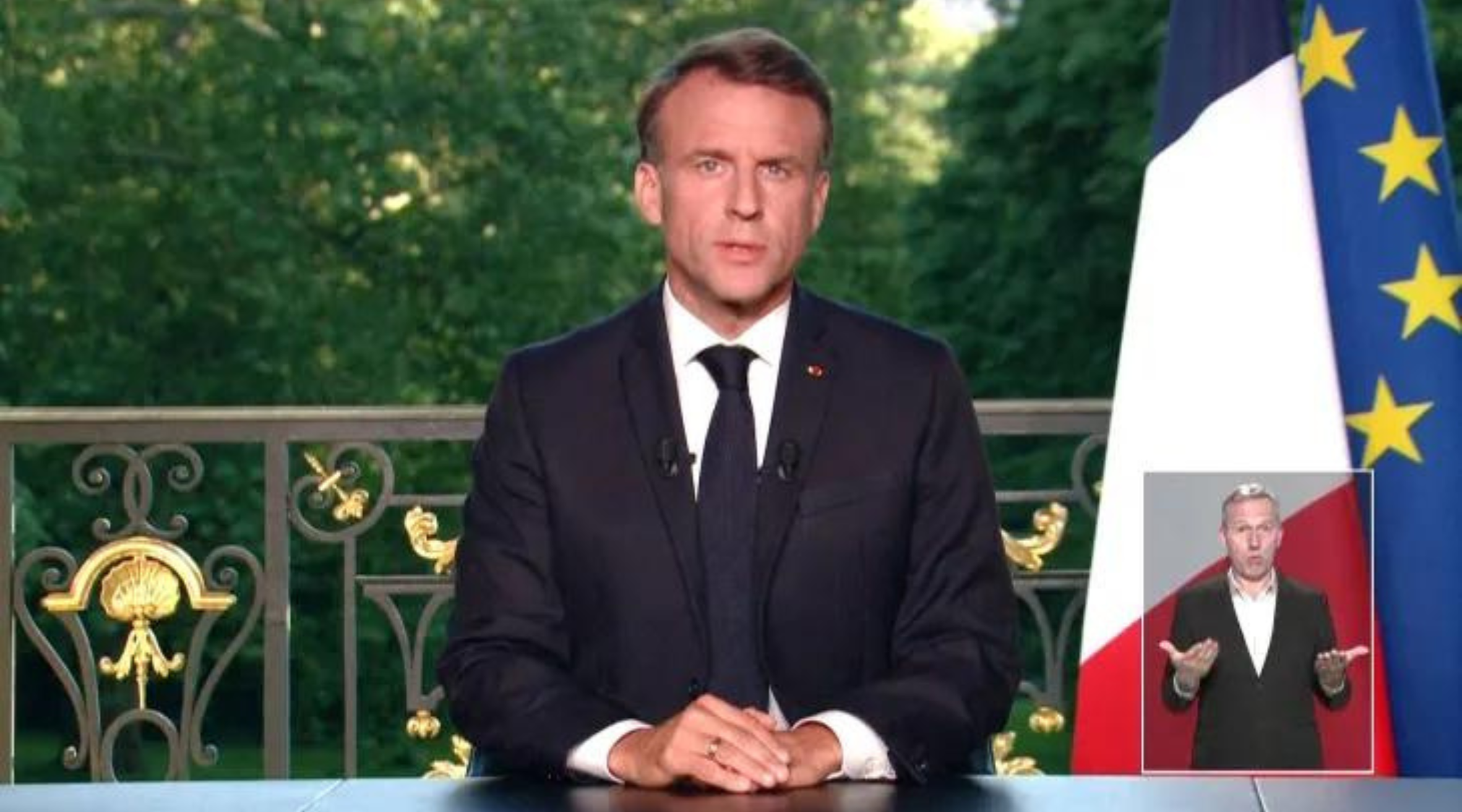France (Transatlantic Today)— President Emmanuel Macron dissolved parliament and started the process of calling early elections after the far-right National Rally handily defeated his party in the European elections. This move comes amidst warnings of potentially historic consequences by Finance Minister Bruno Le Maire.
German Response and Calls for Change
While the defeat also dealt a blow to Germany’s Social Democrats, Chancellor Olaf Scholz has opted against early elections, contrasting sharply with the French approach. However, voices within Germany, like CSU premier Markus Söder, are advocating for a fresh start, mirroring Macron’s decision.
Dissolution Decision and Political Reactions
According to BBC, Macron’s ally Yaël Braun-Pivet acknowledges the alternative of a government pact but reveals Macron’s determination for new elections. This decision met with surprise across the political spectrum, has prompted urgent discussions, including among rival far-right factions.
European Context and Reflection
Macron and German President Frank-Walter Steinmeier mourn the massacre in Oradour-sur-Glane and highlight the perils of nationalism against the backdrop of the European elections. After the EU elections, parties like Alternative for Germany (AfD) have achieved notable advances despite controversy, which aligns with this sentiment.
Upcoming Summit and EU Leadership
As Macron prepares to meet with Scholz and Italy’s Giorgia Meloni at the G7 summit, discussions not only revolve around election outcomes but also the support for Ursula von der Leyen’s potential re-election as European Commission president. Italy’s Meloni suggests it’s premature to discuss von der Leyen’s second term.
European Election Outcomes
The European People’s Party emerges victorious, with notable shifts in various countries. Poland’s Donald Tusk secures a stronger mandate, while smaller anti-system parties challenge established norms, reflecting a broader trend across Europe.
Far-Right Surprises and Concerns
While far-right parties face setbacks in Finland, Sweden, and Denmark, concerns persist over their growing influence across the continent. Notably, controversies arise regarding MEPs’ past actions and affiliations, raising questions about the direction of European politics.
Conclusion: European Political Landscape
Following the European elections, Europe faces a complicated political environment characterized by reversing political allegiances, unexpected results, and mounting worries about the emergence of far-right ideologies. The threat of nationalism looms high as leaders meet to discuss the way forward, emphasizing the need for cooperation and unity throughout the continent.


























